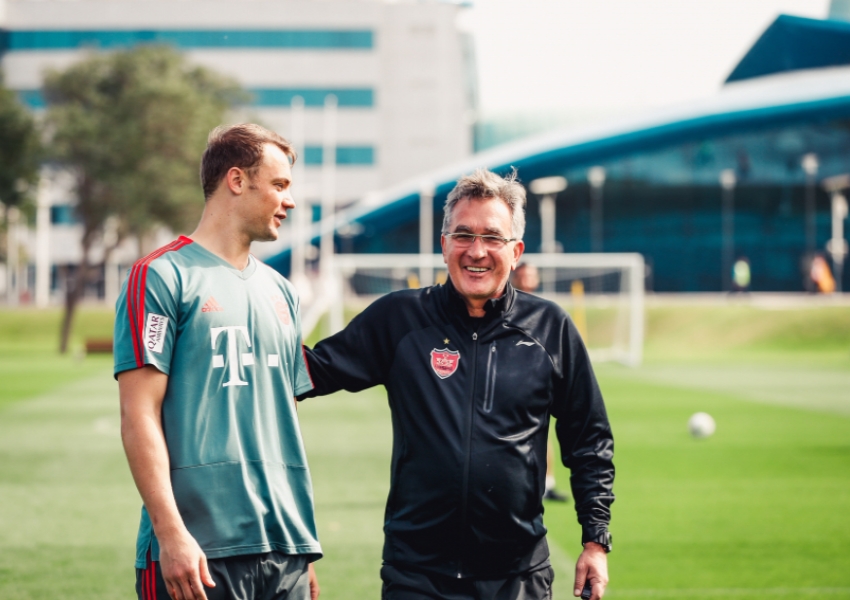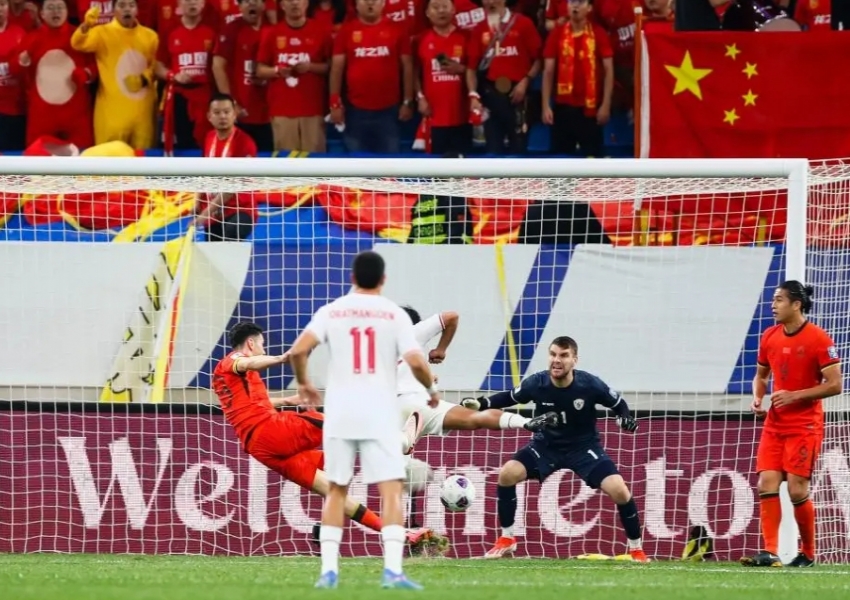First Victory Achieved! Offensive Improvement, Set-Pieces as a Weapon, Ivanković's Bold Moves Pay Off
The Chinese national football team finally claimed their first victory in the 18-team World Cup Qualifying stage, sparking a renewed sense of hope as they now sit just two points behind the top four. With a series of critical matches still ahead, the path to qualification remains open. However, while the players' performance has been under close watch, it is head coach Dragan Ivanković who has been thrust into the spotlight, though not always for the right reasons. The focus on him has grown significantly, but the support has not always followed suit. In fact, during the pre-match announcements before the clash with Indonesia, Ivanković’s name was met with boos from the crowd—an unfair reaction considering the positive impact he's had since taking over the national team.

Ivanković's tenure has seen notable improvements, particularly in the team’s offensive structure. A key aspect has been the dramatic rise in the effectiveness of set-pieces, which has allowed China to punch above its weight, especially when facing Asia's top-tier teams. This improvement comes in stark contrast to the team's dismal showing in the Asian Cup, where they failed to score a single goal and were eliminated without much fight. Even during the first round of World Cup qualification, China managed to find the back of the net but mostly against lightweight opponents such as Singapore and Thailand. When up against South Korea, the team was largely ineffective, spending much of the match on the back foot, with the forwards contributing more defensively than offensively.

Since Ivanković took charge, however, China has looked more competitive. In the ongoing qualifying campaign, aside from the opening loss to Japan, where they were comprehensively outplayed, China has managed to strike first against top Asian sides, only to lose momentum and eventually concede defeat due to fatigue. The gap in physical conditioning is something Ivanković cannot address through coaching alone—this is an issue tied to broader systemic and infrastructural deficiencies. Nevertheless, the tactical evolution, especially regarding set-pieces, marks a significant improvement under Ivanković.

Set-Pieces: The Ultimate Equalizer
One of the most reliable strategies for underdog teams to upset stronger opponents is to take advantage of set-pieces, and China has certainly exploited this approach with great effect. All three of China’s opening goals in this qualifying campaign came via set-pieces, demonstrating the value of Ivanković’s work. While China’s forward line may lack the height advantage it once had, with a general reduction in the stature of attacking players, Ivanković has adapted by utilizing the height and physical presence of defenders and midfielders during set-pieces. This shift has paid off, particularly with China’s defenders playing a key role in the attack during dead-ball situations, which has enhanced the team's aerial threat.
The contrast with Ivanković’s predecessors is stark. China had previously struggled to make any impact with set-pieces, and the team’s lack of attacking cohesion often left them without options. Ivanković, on the other hand, has made set-pieces a lethal weapon for the team, and as seen in recent matches, China now poses a serious threat to any opponent when it comes to dead-ball scenarios. This newfound potency could be the key to breaking into the top four in the group standings.
Tactical Flexibility and New Faces
Ivanković's willingness to experiment has also been one of his defining traits as the national team coach. His tactical bravery was on full display in the match against Indonesia, where injuries to key players Wu Lei and Fernandinho forced him to rethink his strategy. Ivanković opted for a "twin towers" approach, deploying Zhang Yuning and Baihelamu as the front pair. This unconventional tactic produced immediate results, as the combination of Zhang’s height and Baihelamu’s physicality overwhelmed Indonesia's defense. Baihelamu, though not exceptionally tall by international standards, used his robust frame to great effect, often outmuscling defenders and winning duels. This type of "workhorse" center-forward has rarely been seen in China’s football history, but Baihelamu showed that such a role could provide a valuable alternative in specific matchups.
The twin towers formation could indeed shift the balance of power in China’s favor for upcoming matches. Of course, teams like Japan and Australia, with their disciplined and physically capable defenders, may neutralize this tactic, but for most other opponents in the group, this strategy appears to be highly effective. Ivanković has shown that he's willing to take risks, especially given the team’s limited offensive options, and this tactical flexibility is something China has long lacked.
Beyond formations and tactics, Ivanković has also been bold in his selection of new players. His most notable success story so far is Xie Wenneng, who only made his national team debut in the final two matches of the previous qualification round. Xie has since become a key figure in Ivanković's plans, featuring prominently as one of the main outlets on the wings. In fact, Ivanković has used Xie on both flanks, switching him between right and left as needed. Xie’s versatility has been a revelation, and his chemistry with teammates, particularly in the match against Australia, shows that he is adapting quickly to the demands of international football.
Ivanković has also integrated other young talents, such as Yang Zexiang, Hu Hetao, Cheng Jin, and Wang Haijian, who had not been regulars in the national setup before. Not every experiment has been successful, and Ivanković has certainly faced his share of criticism when new players have struggled. However, his willingness to test these players shows a commitment to building a squad for the future, rather than simply relying on established veterans. As it stands, Ivanković has only overseen eight matches in total, and it’s far too early to pass final judgment on his tenure. However, his approach deserves patience and a fair evaluation over time.
Indonesia: A Weaker Opponent or Tactical Masterclass?
It’s also worth noting that while China’s victory against Indonesia is a positive step, the level of competition was a far cry from what they faced in the previous matches. Indonesia’s defensive mistakes directly contributed to China’s first goal, and their overall level of play was notably inferior to the likes of Japan or Australia. This context is important, as it’s premature to declare Ivanković’s reign a resounding success based on this one victory alone. Nonetheless, it’s equally important not to discount the tactical and strategic improvements that have been evident throughout the qualifying campaign.
The criticism Ivanković has faced is often unfair, especially considering the limitations of the player pool and the physical condition of his squad. While the boos from the crowd may reflect frustration with the team’s slow start in qualifying, they overlook the tangible progress that has been made under his leadership. From a more cohesive offensive system to a newfound proficiency in set-pieces, Ivanković has already had a positive impact on the team’s style of play. If given more time, and if China can continue to develop both tactically and physically, the national team could yet emerge as a contender for one of the qualifying spots.
In any high-stakes tournament, emotions run high, and public opinion can shift quickly. Ivanković's challenge is to maintain focus amid the noise and continue implementing his vision for the team.
Copyright Statement:
Author: mrfootballer
Source: Mrfootballer
The copyright of this article belongs to the author. Reproduction is not allowed without permission.
Recommended Blog
- What Does the FA See in Tuchel? Why His Champions League Success Might Not Translate to England
- Inter Milan's Youth Movement: How Oaktree Capital's Strategy Could Signal the End for Eight Veteran Players
- Oaktree Capital's Youth Strategy at Inter Milan: Eight Veteran Players Facing an Uncertain Future
- Is One of Serie A’s Best U23 Midfielders Still Salvageable at Inter? Key Changes and Growing Pains
- Why Inter's Star Striker Struggles with France: Is Deschamps Justified in Shifting the Blame?
- Nations League A Round 4: Belgium Finds New Momentum, Dutch Captain's Suspension Sparks Crisis
- Dutch and Italian Stars Shine for National Teams, But Struggle for Starting Spots at Inter
- UEFA Nations League B: England Needs a Striker, Greece Finds Success in the Unexpected
- UEFA Nations League A, Group D: Can Denmark’s Defensive Streak Continue? Spain’s Lineup Holds Uncertainty
- Inter Milan's Key Metrics Rank Last in Europe's Top Five Leagues: Who Still Has Untapped Potential?
Hot Blog
- Man City’s 21-Year-Old Star Returns Home as a Hero! Receives $350,000 Mercedes, Gifts It to His Father
- AFC Champions League Quarterfinal Draw: Yokohama Faces CR7! Two High-Stakes Clashes as Japan’s Duo Battle in the Bottom Half
- 175 Days on the Sidelines! Barça’s 32-Year-Old Guardian Dreams of a Champions League Comeback
- English Media: Manchester United Will Win Premier League Title in 2028! History Will Repeat Itself, Two Teams Serve as Inspirations
- 4 AM Showdown: Barcelona's Revenge Match! Win = 3-Point Lead Over Real Madrid, Key Players Rested
- 0-2 Double Defeat! China National Team Stuck at 6 Points: No More Direct World Cup Hopes, Two Crucial Matches Ahead
- China National Football Team Drops 13.6 Points, Slips to 94th in FIFA Rankings: Syria Overtakes, New 9-Year Low
- 0-0 Draw! Japan 12 Shots, 2 Missed One-on-Ones: 8 Matches, 20 Points, Group Winner, Saudi Arabia Stuck at 10 Points in 3rd
- 4-1, Double Win Over Brazil! Argentina Celebrates: World Cup Qualification Secured, 4th Team Globally to Qualify
- Real Madrid Got Lazy: 7 Kilometers Less Running in UCL! Two Superstar Spectators While Barça Outruns Them All